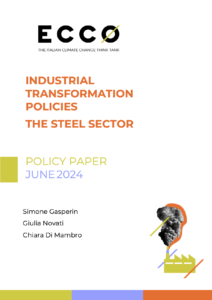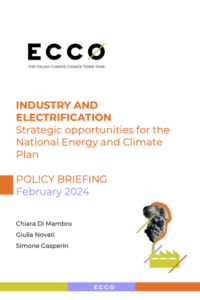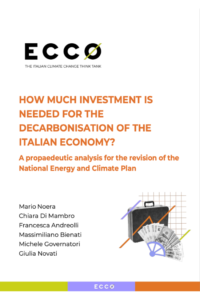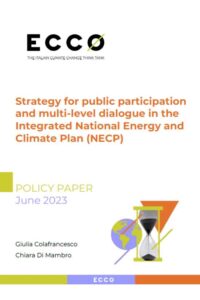Chiara Di Mambro is Head of Decarbonisation Policy at ECCO
Chiara comes from a long lasting experience in the public adiministration at national and eu level, having worked under different contractors for the Ministry of ecological Transition as of 2005 and having been seconded to DG Clima at the European Commission as of 2010 to 2012.
Chiara’s experience starts as an Emissions trading specialist, following the very first national implementation of the ETS directive, as member and then coordinator (in 2015) of the technical secretariat of the national competent authority and then she’s been included in the task force for the definition of the technical basis of the national position throughout all the revisions of the directive itself. Based on this solid competence, Chiara has been involved on the negotiation processes for the national governments of many pieces of climate legislation at EU level as well as to national implementation of some of them.
Chiara was member of the delegation to UNFCCC as of 2013 to 2018 and was co-chair of the EU informal group of coordination on mitigation policies as of 2014 to 2016.
Chiara was part of the National Commission for the Environmental Impact Assessment from 2008 to 2010 and, then again from 2012 to 2020, assessing projects related to the energy field with national relevance.
With a master degree in environmental engineering at University of Rome La Sapienza, Chiara’s profile combines a technical knowledge of the climate change and environment issues with the knowledge of policy negotiations modes and procedures at eu and international level.
In continuity with the academic background, in 2018, Chiara got a PhD on the application of Life Cycle Assessment methodologies to remediation techniques at University of Rome ‘Tor Vergata’.











